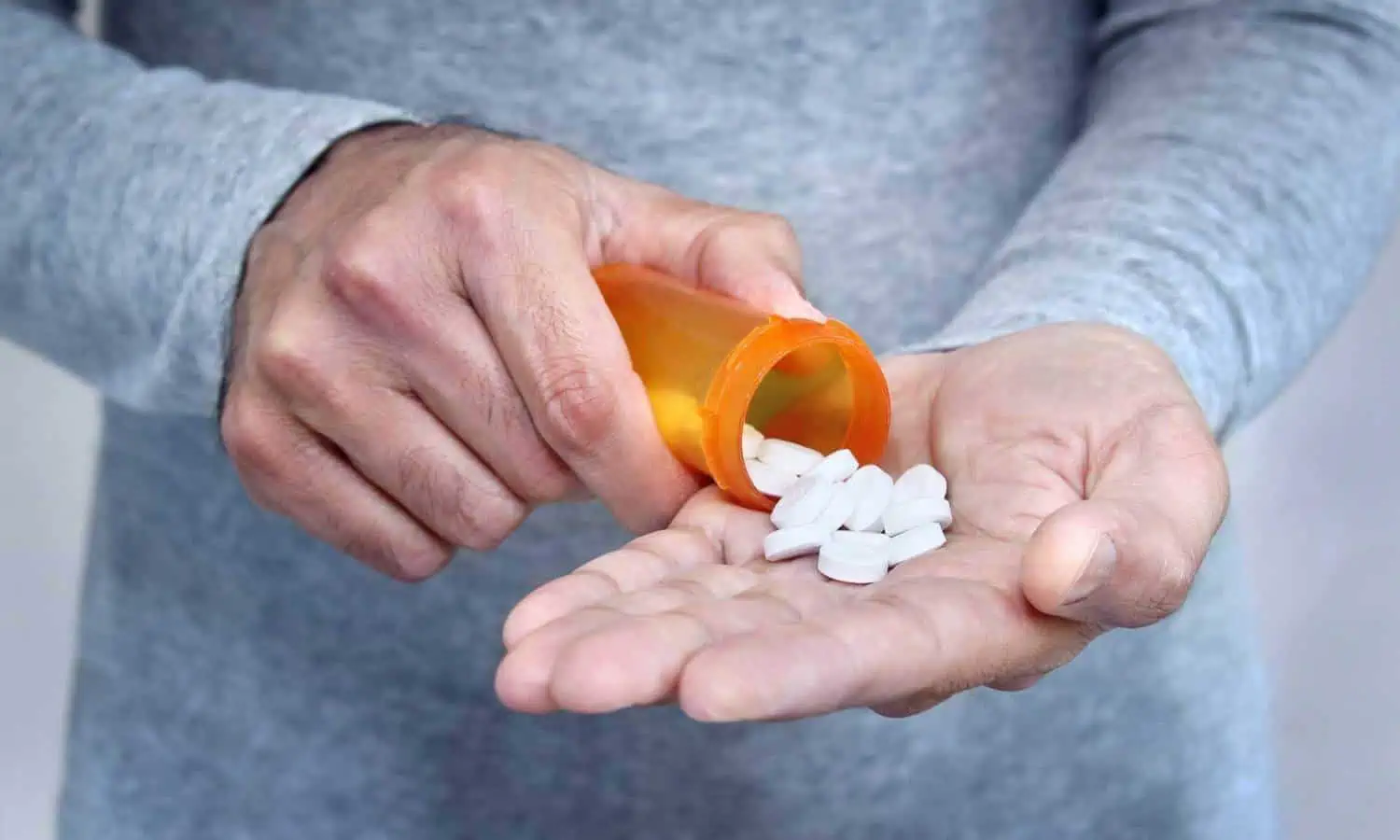Often, when someone is struggling with a substance use disorder, the family witnesses and internalizes their loved one’s ups and downs. Like the person with addiction, the family, too, may experience a spectrum of emotions—guilt, fear, doubt, sadness, and anger—that can take a toll on their well-being. To answer the question, “Why is addiction a family disease?” we asked Mountainside’s Senior Family Wellness Clinician, Bruce Dechert, to weigh in on the challenges that families face before and during treatment.
Interviewer: Before someone who is struggling with addiction gets treatment, do you think stigma impacts the relationship between the person and their family?
Bruce: Sure, and I think it relates to a lack of knowledge. When people don’t understand addiction as an illness, as a brain disease, they will look at it as a person being willful or being selfish, or they’ll look at the person as [if] “they don’t care about us, otherwise they wouldn’t do it.”
There was a movie that was made back in the ’60s for families, and the title of it was If You Loved Me. And it was a way of saying, “If you loved me, you wouldn’t drink so much. You wouldn’t use those drugs.” Certainly, what they were saying at the time, and we’ve known for many years, is that addiction is a disease. It takes a person’s brain and highjacks it so the person can’t control it. That becomes hard for family members who don’t understand, and they will then put blame on the person for their behavior related to addiction, which becomes more stigmatizing. Then, there’s more shame and guilt, and more isolation.
Interviewer: Is there a difference between someone knowing they have a problem and someone being told they have one?
Bruce: Yes. I think the difference depends on whoever feels the most pain related to this situation. So, as a family member, I may be observing my loved one struggle with addiction, and say, “Hey, you need to get some help. You need to go into some kind of treatment program.” If you, as the person with a substance use disorder, are not feeling as much discomfort around your use, but I feel it, then I might reach out and look for help from someone to say, “Hey, my friend is struggling. I don’t know what to do about it.” So, I might seek support from someone to intervene.
Interviewer: What often prevents those struggling and their families from healing together?
It’s really this dynamic of powerlessness. When a person feels powerless to stop using, then they struggle as to how to get that next bit of support or help with stopping.
Family members, too, feel powerless. They can’t stop the person. They can’t change them. The problem is when family members feel powerless and they love someone, it provokes fear. It brings more fear instead of love. And even though they love the person greatly, the power of fear takes over, and then they react from fear instead of from love. The fear drives people like wild animals to either go in and attack, fix, change, control, or step back. And they step back, and they step back. That dynamic of coming from a place of fear is much stronger, and they tend to react stronger, which can either move someone towards a treatment or into further isolation.
So, we try to get the family to understand what addiction is and that it’s not personal to them. This is one of the best ways to get everyone in the place of moving towards recovery, and we look at it as a parallel process [of healing]. Families and their loved ones who are struggling with addiction can all be in the process of recovery.
Interviewer: When during the treatment process does the family usually begin to get involved with the treatment of their loved one?
Bruce: I believe that families often get involved way before treatment, and that is where their fear goes up and they feel desperate to do something. And oftentimes they will call and say, “I have a loved one who has a problem with alcohol, or with other drugs, and I don’t know what to do.” We don’t treat individuals; we treat families. Because it is a family illness, and so from that first phone call into admissions, the staff are trained to work with families, to understand where they are, what’s happening to them, and what they need, along with how desperate the situation is, in order to make sure people are safe and they can begin to move towards getting treatment.
Interviewer: How important is the ability to reconnect with family, as a client in treatment?
Bruce: Well, I can tell you a couple of things that are really key to this. One is, we know through general research over many years, that people who have family involved actually do better in treatment and the following treatment. And we also know through other research that the opposite of addiction is not necessarily recovery; the opposite of addiction is connection. It’s a piece that I believe is a keystone of our treatment, and that is, as we look at the holistic part of treatment, a person loses their soul in addiction. They lose the connection with their authentic self.
In recovery, it is so crucial for us to empower clients to reconnect with their authentic self, with their true self. And part of that is engaging family and friends in a way where they can speak to that part, and have family say, “I will tell you: this is who they are. They are an amazing person and so lovely and loving and caring, and we have had such a good life,” and teaching that client that they are a good person, because they lose that person. And so the process of recovery is reconnecting with the self and with family.
Interviewer: Do clients usually want to connect with their families when they leave detox treatment? Does this happen right away, or does it take longer (i.e. a few weeks into treatment)?
Bruce: It all depends on what the relationship has been, how guilty they feel, what kind of connections they have with family. Some of them still don’t feel ready to face family. Some of them need and want family every day on the phone. Some of them call family and say, “Get me out of here!” [Laughs] Because they’re so uncomfortable, and they want that immediate gratification. They want to change how they feel, and they think family is going to rescue them. But many times, it’s because they want to use because that’s what they last did. It numbs them, and that’s when it becomes problematic.
Interviewer: Do families feel guilty when they put their loved one in a treatment center?
Bruce: That’s the hard part for families. In these stages of treatment, oftentimes families feel great relief when they have their loved ones come into treatment. And then the families are like, “Oh my gosh, look what we’ve just been through. That’s been so painful.” Then they hear from their loved ones in treatment who want to leave, and the family says, “Wait a minute. I’m not ready for that. You have to stay there.”
But then they feel guilty, like, “Oh, we’re putting them through this terrible experience.” Oftentimes, that’s when the staff need to reach out and say, “Stay firm. Keep your boundary. Don’t give into them. Try to be strong and let them know they can do it, and encourage them to stay.”
Interviewer: Why is it important for families to go to therapy and get help while their loved one is in treatment?
Bruce: It’s a parallel process, so the turmoil, the chaos, the stress that the client experienced in their use of the substance—the family also experienced great pain, and stress, and chaos, and they didn’t know how to change it. So oftentimes we say, “You need support too. Please go to see a therapist, go to family therapy, start your process now, because your loved one is doing their [part].”
Getting them to come to the support groups that we have are so important because we have family members that have been coming for over a year to that group because they love the support they get and can give each other. And when we have new families coming in, they say, “Well, this is the first time I’ve gone to one of these groups. I don’t know what to say or do. I don’t know how to help my loved one, if anyone can tell me…” Everybody jumps in with lots of support and love, and they say, “This is normal. You’re going to feel crazy. This is a hard time. Don’t give into them. Hold that boundary. Make sure you’re taking care of yourself. This is how we take care of ourselves…” So, there’s a lot of similar process going on throughout the entire treatment phase.
Interviewer: How does Mountainside involve families in the treatment process?
From the very beginning, in that early-on phone call, Mountainside begins to work with families to understand the treatment process and the process of recovery. What’s available to them, what their resources are. They let them know about our support group for families. Sometimes, our family members will even show up in the support group on Wednesday nights, and they will hear other family members who have been involved already, and they’ll hear about how they got into treatment. And from there, it moves from Admissions into bringing someone either through a referral source, or sometimes an intervention. The Admissions team will give families the name of an interventionist and they will work with the families to help that loved one get themselves into treatment.
If it’s at Mountainside, then we will help to coordinate the timing of the admission, how the person will get here, whether we need to provide transportation or if the family will bring them to treatment. As soon as they come, we try to reach out to the families and talk with them briefly. Then, every step of the way, each area of treatment—whether it is Detox, or Residential, or Continuing Care, or Family Wellness—we all make calls to the family to keep them engaged and to keep talking with them about their recovery and what they can do to take care of themselves.
Interviewer: Thank you, Bruce, for explaining the recovery journey through a family lens!
If you or a loved one is struggling with addiction, Mountainside can help.
Click here or call (888) 833-4676 to speak with one of our addiction treatment experts.

 By
By 






